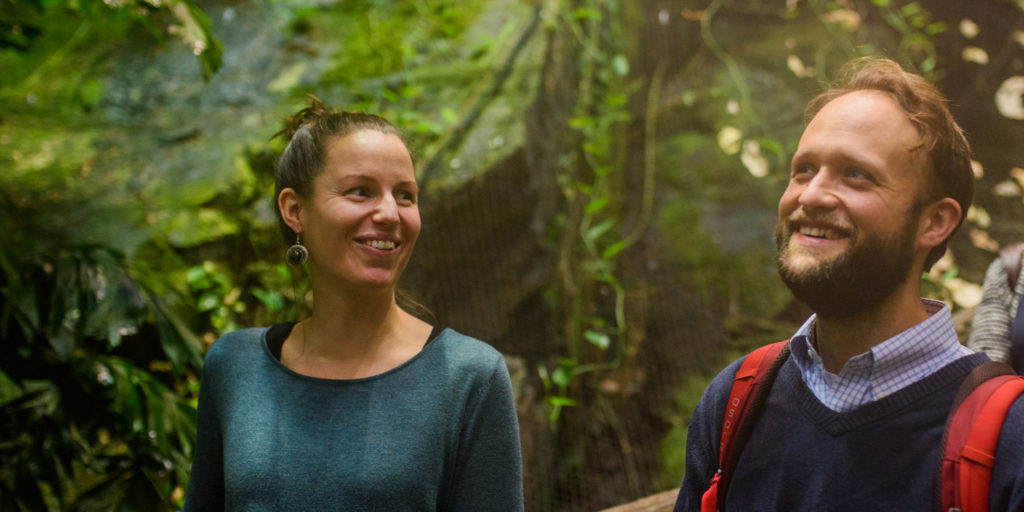Program
Day 1: November 4, 10:00-12:15 and 13:30-14:00
2020: The Year of the Converging Crises – Multidisciplinarity key to solve entangled challenges
– Key note: Grace Wong, Researcher, Stockholm Resilience Centre, Stockholm University: Politics, power and precarity in changing forests: Challenges for research
– Torsten Krause, Lund University Centre for Sustainability Studies – Traditional ecological knowledge and hunting of forest fauna, why does it matter for the SDGs? Connecting the dots
– Denise Margaret Matias, Institute for Social-Ecological Research (ISOE) & Non-Timber Forest Products Exchange Programme (NTFP-EP) Asia: Forest-dependent peoples and wildlife consumption bans
Speed-talk session I: “Tropical deforestation – causes, implications and needed measures”
Moderator: Torsten Krause
– Lan Wang Erlandsson, Researcher, Stockholm Resilience Centre: Large parts of Amazon rainforest lose resilience under climate change
– Martin Persson, Chalmers University of Technology: Reducing commodity-driven tropical deforestation – Political feasibility and ‘theories of change’ for EU policy options
– Paula Andre Sánchez García, Stockholm Resilience Centre: Understanding Land Speculation as a driver of deforestation in the Northern Colombian Amazon
Contested and polarized issues – how to communicate complexity?
Moderator: Linda Hansson
– Aida Bargués Tobella, Swedish university of Agricultural Sciences, SLU
– Elisabeth Simelton, World Agroforestry Vietnam
– Lan Wang Erlandsson, Researcher, Stockholm Resilience Centre
– Speaker TBC
Speed-talk session II: “Land-use, livelihoods and rights”
Moderator: Harry Fischer (TBC)
– Stephen Woroniecki, Linköping University (Tema M /CSPR) and Oxford University (Nature-based Solutions Initiative): Biodiversity and Justice – Exploring the Epistemic Tensions
– Minda Holm, Stockholm Resilience Centre: Indigenous rights, claims and contestations in the changing forest-agriculture landscapes in South-East Asia – A literature review
– Linda Engström, Swedish University of Agricultural Sciences SLU: What are the impacts of cancelled development projects?
Day 2: November 5, 10:00-12:15 and 13:30-14:15
Research-policy-practice dialogue on ”The super-year for nature and people”
Moderator: TBC
– Jan Wärnbäck, Senior Policy Specialist Environment and Climate, Sida
– Anton Anderssson, Forest Policy Advisor, Swedish Ministry of Enterprise and Innovation
– Speaker TBC
Speed-talk session III: “People at the center of restoration and sustainable landscape management”
Moderator: Hanna Sinare (TBC)
– Ylva Nyberg, Swedish University of Agricultural Sciences SLU: Use, effectiveness and disadvantages of agroforestry – Kenyan case
– Rosa Goodman, Swedish University of Agricultural Sciences SLU: Value generation is the key to scaling restoration and management
– Lila Nath Sharma, ForestAction Nepal: A framework for ecologically informed invasive species management and forest restoration
– Harry Fischer, Swedish University of Agricultural Sciences SLU: Effects of afforestation on rural livelihoods and land cover: Evidence from 40 years’ tree plantations in northern India
– Dil Bahadur Khatri, South Asia Institute of Advanced Studies: Lessons from research-policy-practice lab methodology in the local water management sector in Himalayas
Closing
Additional networking session: Planting seeds for deeper collaboration
Group discussions within thematic areas
- Ecosystem restoration, climate and livelihoods
incl. speed-talk by Gert Nyberg, SLU, on the Formas project Drylands Transform: Pathways and challenges towards a social-ecological transformation of landscapes, livestock and livelihoods.
- Tackling deforestation and biodiversity loss while ensuring livelihoods and rights
- Networking session open for other themes
